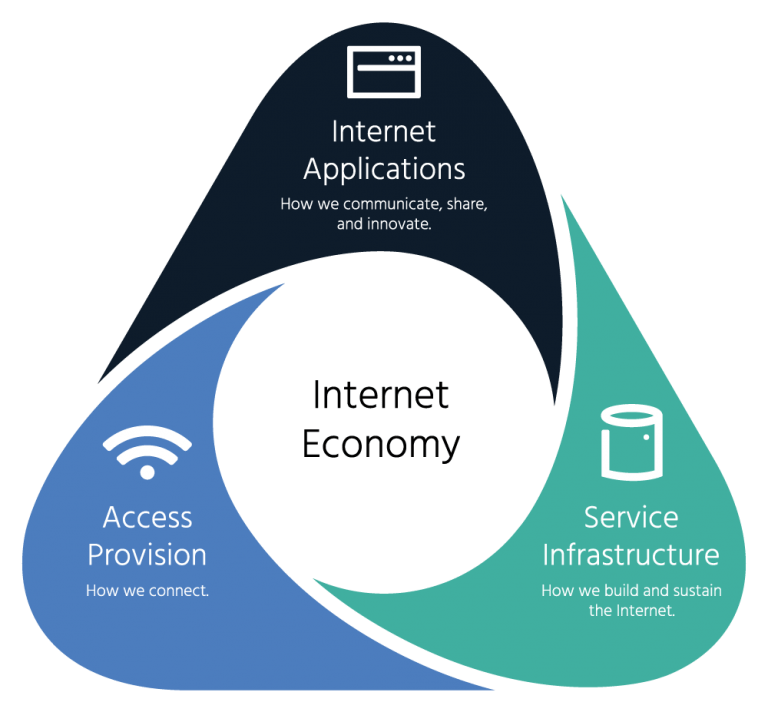In the 2017 Global Internet Report, our global community identified a concern that a lack of competition and increased market concentration could have severe implications for the Internet’s technical evolution and use. Our goal for the 2019 report was therefore to explore trends of consolidation in the Internet economy, guided by the central question: Are there trends of consolidation in the Internet economy, and if so, how will consolidation impact the Internet’s technical evolution and use?
In the 2019 report, the Internet Society asks whether the Internet economy is consolidating and, if it is, what the implications might be. From the dominance of Facebook in social messaging, Google in search and Amazon in online shopping, the largest Internet platforms are capturing fundamental human interactions. This dominance, and the finances and reach that accompany it, enable the platforms to extend their influence and reach into new market spaces, from autonomous vehicles, to AI, to cloud services and beyond. This leverage is built on unprecedented network effects, vast troves of user data, business agility, and regulatory freedom that few other companies enjoy.
In this report, we recognise the incredible convenience these platforms provide the Internet user. At the same time, we also recognise the concerns that are being voiced about this dominance, and about the responsibility these companies have to society and economy. The 2019 report explores these issues by examining five key trends and themes that emerged from extensive engagement with the Internet Society community, and surveys and interviews with experts, thought leaders and influencers.
What Is Consolidation in the Internet Economy?
Consolidation trends include growing forces of concentration, vertical and horizontal integration, and fewer opportunities for market entry and competition.

The Internet economy, as understood in this report, is broadly defined as the economic activities that either support the Internet or are fundamentally dependent on the Internet’s existence. Organised around three separate but closely linked economic domains-Internet Applications, Access Provision, and Service Infrastructure-this section is intended to provide a snapshot of various markets, and to describe how they relate to the Internet as a whole. As such, it is not intended to provide an in-depth economic analysis, nor is it exhaustive in terms of encompassing all relevant markets and services. Rather, it provides a starting point for further discussion.
Key Features of the Consolidation of the Internet Economy
The Internet Society recognises that the impact of consolidation and concentration on the Internet economy as well as on the open, interoperable, and global Internet are difficult to gauge. As noted already, there are benefits to operating at scale. Consolidation and concentration can also greatly benefit the user by providing platforms that offer seamless Internet experiences. At the same time, it’s unclear what the impact is on innovation, entrepreneurship and, importantly, competition. It’s unclear what concentration and consolidation may mean for user choice, including choice of content, services, and provider.
Report Highlights
- Executive Summary
- How We See the Internet (pg.12-16)
- What Is Consolidation? (pg. 17-32)
- Takeaways and Observations (pg. 33-57)
- Impact Analysis (pg. 58-61)
- Conclusions and Questions for the Future (pg.62-64)
- Community Survey: Questions and Results (pg.72-74)

